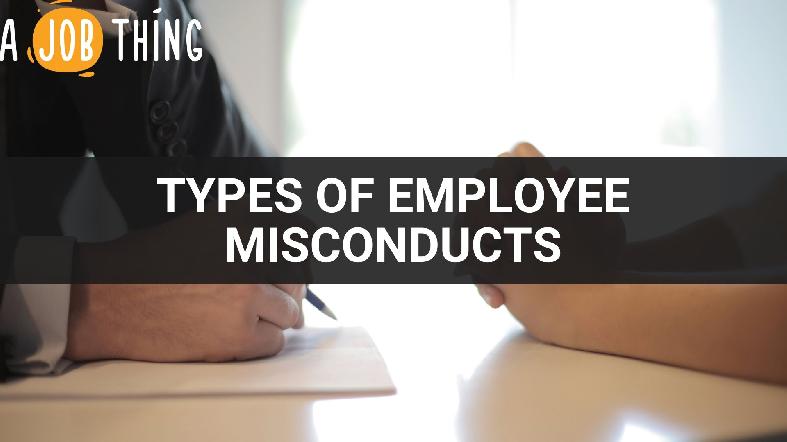
Types of Employee Misconduct and Disciplinary Actions
Are You Hiring?
Find candidates in 72 Hours with 5+ million talents in Maukerja Malaysia & Ricebowl using Instant Job Ads.
HIRE NOW
There are actions that an employer can take against employees who have been errant or unmanageable, which includes dismissals. But, any action taken must follow the right disciplinary procedure.
Progressive disciplinary action
This is a process in which an employer takes disciplinary action against a worker in a progressive manner; that is, going from lesser to heavier intensity action.
A lesser version of disciplinary action may include:
- Counselling the employee
- Issuing warning letters
Heavier intensity action includes:
- Issuing a show-cause letter
- Suspending the employee
- Conducting domestic inquiry
- Dismissal
There are several clauses in the Employment Act 1955 (EA) that concerns taking disciplinary action in a progressive manner. If an employer acts with due care in taking disciplinary action, there won't be an intervention from the courts. It's important to follow the process step by step as it will reflect fairness on the employer's part and can minimise industrial court cases for unlawful dismissal.
It is vital to investigate all misconducts and acts of discipline to identify whether they are minor or major in nature. The management of misconduct and some of the related clauses are regulated under Section 12, 13, 14 and 15 of the EA and also in Section 20 of the Industrial Relations Act 1967.
Here are further explanations of the types of misconduct:
Minor Misconduct
Minor misconduct can be interpreted as any act of indiscipline or behaviour by an employee that causes minimal damage or harm, and is less damaging to the reputation of the personnel and assets of the employer.
Some examples include:
- Occasional tardiness
- Absence without leave
- Leaving the workplace before time
- Careless use of company tools and equipment
- Not storing tools in proper order
- Not wearing uniform
- Not using basic safety equipment
- Using company property for personal purposes and all other similar acts.
Every complaint must be put in writing on a formal complaint application provided by a supervisor or the head of department. If the complaint is found not to be an offence after investigations, the supervisor or head of department should respond to the complainant that there is no case of misconduct.
If the same misconduct is repeated, a warning letter should be issued. The letter must state the misconduct and warn that serious disciplinary action can and may be taken against the employee if there is no effect in correcting the misconduct. A second warning letter should be issued if the employee commits the same misconduct again.

If the same misconduct is repeated, a warning letter should be issued.
The first warning letter can be issued by the respective head of department so the employee is aware that the person they directly report to, such as supervisor or manager, can take disciplinary action against their subordinate.
The second warning letter should be issued by the human resource department. The HR department should also manage any other action if the situation becomes worse and needs further attention, as it would be more familiar in managing the progressive disciplinary processes. If the misconduct continues, it may be considered a major misconduct.
Major Misconduct
Any act of indiscipline or behaviour that causes significant harm or damage, is detrimental to or affects the reputation of the personnel and assets of the employer is considered as major misconduct. All major misconducts must be investigated.
Here are some examples of major misconducts:
- Insubordination,
- Disobedience,
- Theft,
- Fraud and dishonesty,
- Gambling,
- Assault, violence, and abuse,
- Habitual absences and habitual late attendance,
- Bribery,
- Negligence of duties,
- Failure to observe safety rules,
- Chronic inefficiency in performance,
- Drug and alcohol abuse,
- Engaging in private work during working hour,
- Destroying company documents and all other similar acts.
Based on the merits of the case, certain measures can be taken which includes suspension with half-pay and the issuance of a show-cause letter. If the response given by the employee is not acceptable, the final warning letter can and may be issued.
If the employee does not satisfy the conditions that were placed, the employer may continue by holding a domestic inquiry and take a more serious disciplinary action against the employee. This includes dismissal.
Depending on the weight of the misconduct, a final warning letter can be given instead if the employer does not wish to suspend the employee.

Depending on the severity of the misconduct, an employee can be dismissed through domestic inquiry
If suspension with half-pay is needed, the next move is to issue a show-cause letter. In a regular situation, the employee should be given ample time to answer the letter (for example, five working days). But this can be extended if the situation is more severe and necessitates a longer process, for example, witness accounts need to be collected.
If the reply is not acceptable, a final warning letter can be issued. In circumstances where said misconduct continues, the employer may proceed with a domestic inquiry.
Urgently seeking candidates to hire?
Look no further! AJobThing offers an effective hiring solution with our instant job ad feature. Hire in just 72 hours! Try Now!
You may read more about domestic inquiry here.
Source: The Star / National Human Resource Centre




